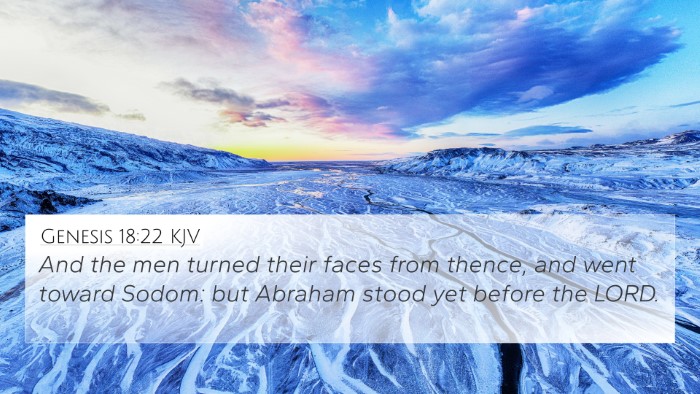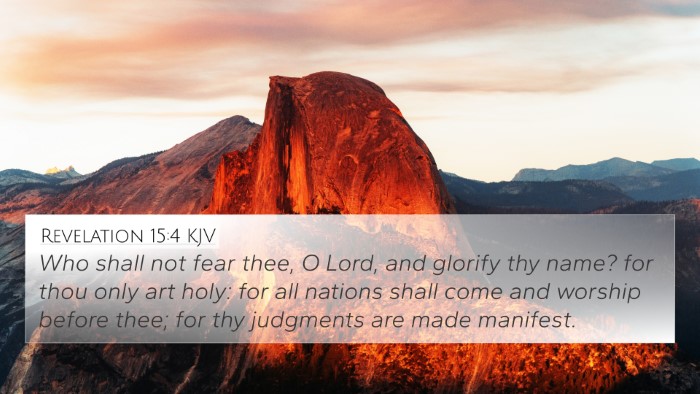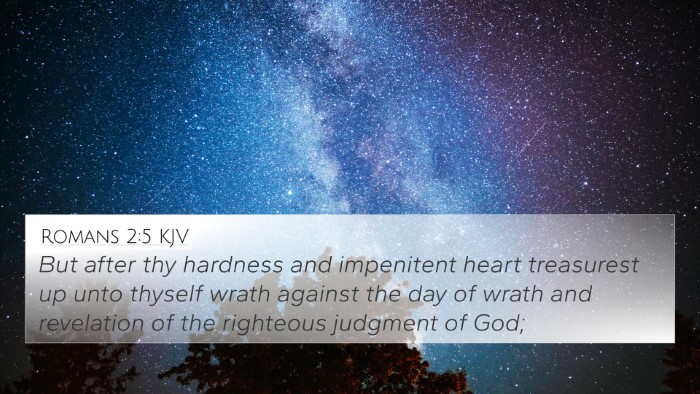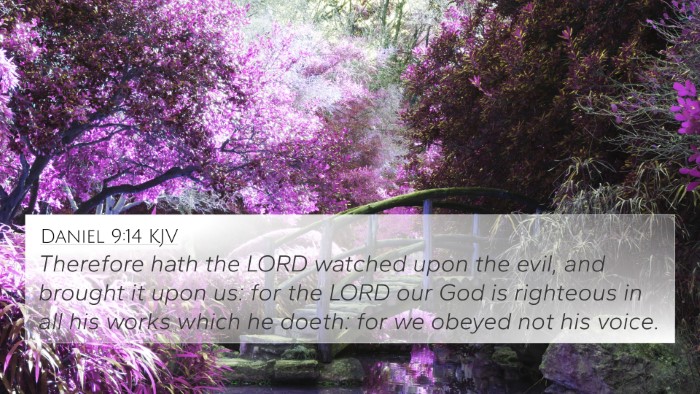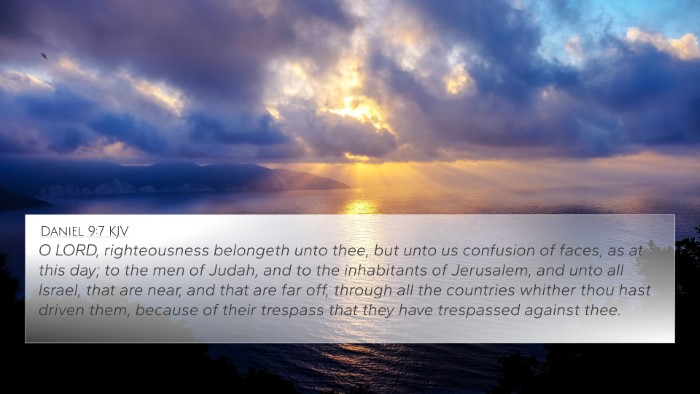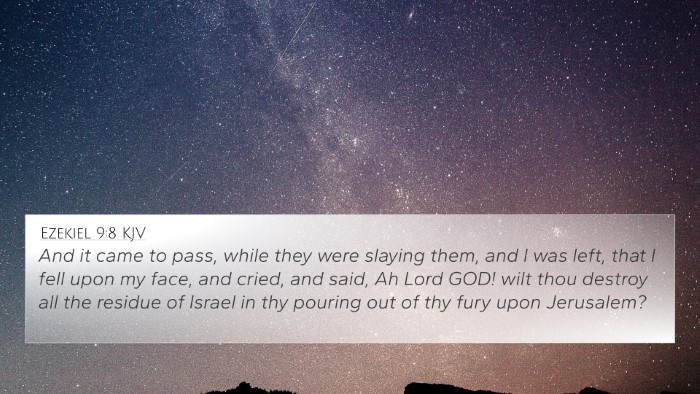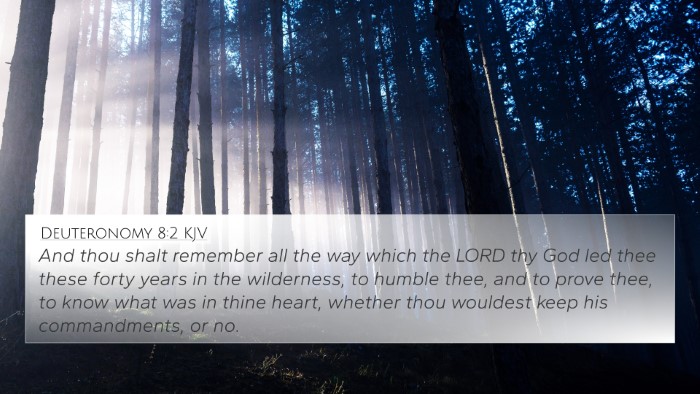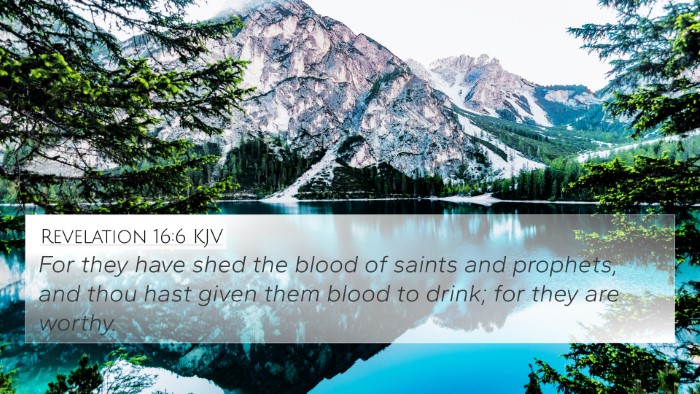Ezekiel 14:23 - Summary and Meaning
Ezekiel 14:23 states: "And they shall comfort you, when you see their ways and their doings: and ye shall know that I have not done without cause all that I have done in it, saith the Lord GOD." This verse comes in the context of God's judgment against Israel. Here, we explore the significance and deeper meanings of this verse, weaving insights from various public domain commentaries.
Context of Ezekiel 14:23
To fully understand Ezekiel 14:23, it is essential to consider the broader narrative of the Book of Ezekiel. This prophetic book primarily addresses the Israelites who were facing consequences for their unfaithfulness to God. The chapter discusses the severity of their actions and how they have led to God's judgment.
Key Themes in Ezekiel 14:23
- Divine Justice: The verse asserts that God's actions are purposeful and just, even when they seem harsh.
- Comfort in Recognition: The acknowledgment of God’s righteousness provides comfort to the faithful upon seeing the consequences of sin.
- Restoration: The eventual restoration of the relationship between God and His people is hinted at, as they come to realize the reasons behind their suffering.
Insights from Commentaries
Matthew Henry's Commentary
Matthew Henry emphasizes that the knowledge of God’s just actions provides comfort to the faithful. He posits that seeing the results of divine judgment brings a clearer understanding of God’s nature and His righteousness. Henry reminds us that every hardship encountered is a part of God’s divine plan, aimed at leading His people back to Him.
Albert Barnes' Notes on the Bible
Barnes highlights the importance of recognizing the reasoning behind God's actions as a form of enlightenment. He suggests that when the Israelites reflect on their ways, they will better understand that God's decrees come with purpose. This realization is designed to evoke repentance and a return to faithfulness.
Adam Clarke's Commentary
Clarke discusses the human tendency to feel abandoned in times of crisis. He points out that the comfort mentioned in this verse arises from a deeper comprehension of God’s motives and desires for His people. Clarke believes that people will find peace in understanding that their suffering is not in vain but aimed at a transformative outcome.
Bible Cross References
Ezekiel 14:23 connects with numerous other biblical passages that echo similar themes of judgment, repentance, and God's faithfulness. Here are 10 Bible cross-references relevant to this verse:
- Ezekiel 18:30-32: Calls Israel to repentance and emphasizes that God takes no pleasure in the death of the wicked.
- Jeremiah 29:11: Reveals God's plans for His people are for good, not for evil.
- 2 Peter 3:9: Indicates that the Lord is patient, not wanting anyone to perish but everyone to come to repentance.
- Romans 8:28: Affirms that God works all things together for good to those who love Him.
- Isaiah 54:7-8: Discusses God’s temporary abandonment but assures everlasting kindness in the end.
- Psalm 119:75: Recognizes that God’s judgments are righteous and a source of comfort.
- Hebrews 12:6: States that the Lord disciplines those He loves, emphasizing the positive aspect of correction.
- Proverbs 3:11-12: Encouraging acceptance of the Lord's discipline as a sign of His love.
- Lamentations 3:31-33: Affirms that the Lord does not cast off forever, but brings hope and restores His people.
- Micah 7:18-19: Celebrates God’s mercy and forgiveness, illustrating His readiness to forgive if they turn back to Him.
Concluding Thoughts
In conclusion, Ezekiel 14:23 encapsulates a profound message about understanding God's actions and the comfort that follows true recognition of His purpose. The insights from well-respected public domain commentaries like those of Matthew Henry, Albert Barnes, and Adam Clarke, shed light on the significance of this verse. As believers, exploring cross-references enhances our understanding and deepens our insights into God's character and His relationship with humanity. By engaging with the connections between Bible verses, we can appreciate the intricate tapestry of divine truth woven throughout Scripture.




